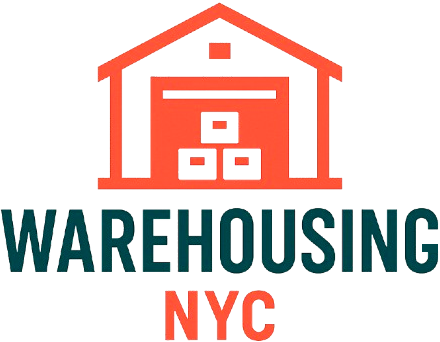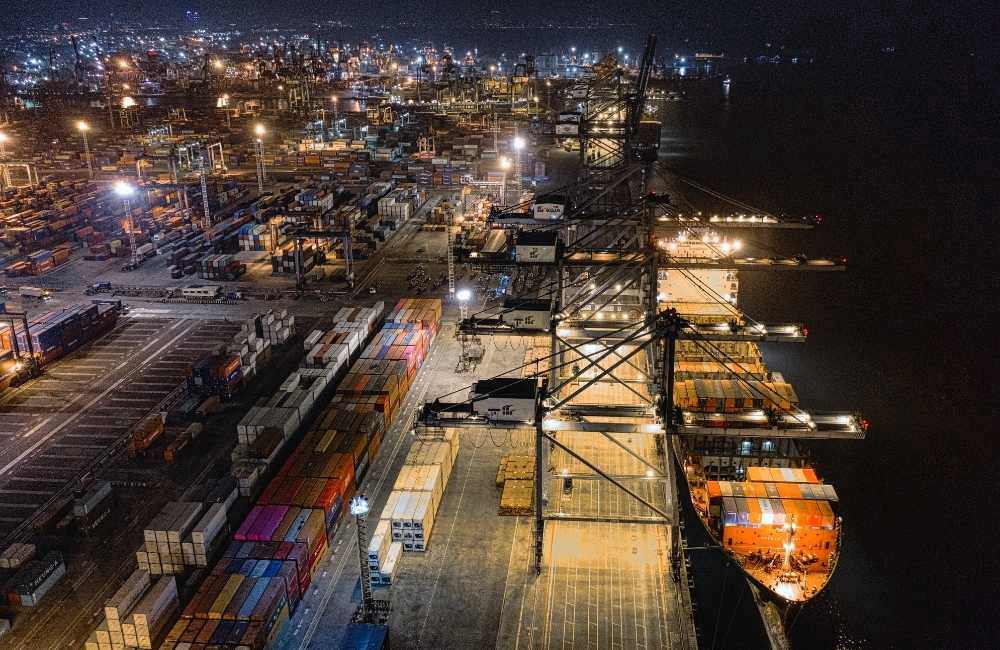Navigating the intricate logistics landscape of New York City (NYC) presents unique challenges due to its dense population, congested traffic, and complex infrastructure. To address these complexities, businesses often turn to third-party logistics (3PL) providers, which offer comprehensive solutions to streamline supply chains, enhance efficiency, and reduce operational costs.
Table of Contents
Key Takeaways
✔ 3PL providers connect businesses with vetted carriers, negotiate shipping rates, and optimize delivery routes for cost-effective and timely transportation.
✔ Real estate constraints in NYC require businesses to use strategically located warehouses with advanced inventory tracking for efficient storage and fulfillment.
✔ Tailored services like temperature-controlled storage, hazardous materials handling, and kitting help meet specialized logistics demands.
✔ 3PL solutions allow businesses to scale operations by expanding warehousing, multi-channel fulfillment, and risk management without heavy infrastructure investments.
✔ Real-time tracking, predictive analytics, and automated order processing help businesses optimize logistics and reduce errors.
✔ Understanding NYC’s regulations, traffic patterns, and delivery restrictions ensures smoother operations and compliance.
✔ Collaborating with trusted carriers helps businesses secure competitive pricing, flexible shipping options, and dependable delivery services.
✔ 3PL providers focus on personalized strategies, proactive problem-solving, and continuous support to optimize supply chains and improve business performance.

NYC’s Complex Logistics Landscape
New York City’s fast-paced, high-density environment creates a unique and demanding landscape for professional shipping logistics in NYC. Unlike suburban or rural areas where trucks have ample space to maneuver, NYC presents space constraints, strict regulations, and heavy congestion that require a more strategic, adaptable approach. The sheer volume of commercial activity in the city means that expert shipping services in NYC must be highly efficient to meet delivery deadlines while minimizing costs and disruptions.
In 2021, trucks transported approximately 643 million tons of cargo across New York State, with a total value of $982 billion. This figure is projected to grow by 2050, further increasing the demand for streamlined logistics solutions. To navigate these challenges, local shipping specialists rely on advanced route optimization, real-time tracking, and strategically located distribution centers. The ability to quickly adapt to changing traffic conditions, strict loading regulations, and last-mile delivery restrictions is what sets New York’s trusted shipping providers apart. Companies that offer professional shipping logistics in NYC must continuously innovate to ensure smooth operations and cost-effective solutions for businesses in this demanding market.
1. Heavy Traffic and Delivery Restrictions
NYC is known for persistent traffic congestion, which complicates logistics operations. With thousands of commercial vehicles, taxis, and private cars filling the streets, delivery trucks often struggle to find efficient routes. Key challenges include:
- Unpredictable Delays: Traffic congestion fluctuates throughout the day, especially during rush hours, making it difficult to plan consistent delivery schedules.
- Restricted Delivery Windows: Many commercial areas impose time restrictions on deliveries, requiring shipments to arrive within narrow timeframes. Logistics providers must carefully schedule routes to avoid penalties.
- Lane Restrictions and Parking Limitations: Some streets prohibit truck access, while others lack available loading zones, forcing drivers to park further away from delivery locations and increasing transit time.
2. High Costs of Logistics Operations
Operating a logistics business in NYC is significantly more expensive than in other regions. Key cost factors include:
- Premium Real Estate Costs: Warehousing space is limited and expensive, requiring logistics providers to use micro-warehousing solutions or multi-purpose distribution centers to optimize storage.
- Tolls and Fuel Costs: With multiple toll bridges, tunnels, and highways, logistics providers must factor in additional transportation expenses. Traffic congestion also leads to higher fuel consumption, further driving up costs.
- Regulatory Compliance Fees: Businesses must adhere to strict trucking laws, emissions standards, and safety regulations, leading to higher compliance costs and potential fines if rules are not followed.
3. Last-Mile Delivery Challenges
One of the biggest hurdles in NYC logistics is last-mile delivery, the final stage of the shipping process where goods reach their destination. In a dense urban environment, navigating the final mile is often the most time-consuming and expensive part of the journey. Key obstacles include:
- Residential and Commercial Delivery Delays: Large apartment buildings, office towers, and retail locations require specific delivery procedures, sometimes involving freight elevators, doorman approvals, or secure package lockers.
- Pedestrian Congestion: Deliveries often occur in high-foot-traffic areas where navigating sidewalks, bike lanes, and crowded streets can significantly slow down operations.
- Security Concerns and Theft Prevention: Packages left unattended in public areas are at higher risk of theft, requiring secure drop-off locations, locked storage lockers, or signature confirmation for valuable shipments.
4. Regulatory Compliance and Environmental Policies
New York City has some of the strictest transportation regulations in the country, requiring logistics providers to stay up to date with evolving compliance laws. Some key regulations include:
- Emissions Standards and Green Initiatives: The city enforces regulations that limit carbon emissions from trucks and delivery vans, requiring businesses to adopt cleaner transportation methods.
- Zoning and Loading Restrictions: Certain areas impose limits on the types of vehicles allowed at specific hours, requiring logistics companies to strategically schedule deliveries to avoid violations.
- Permitting and Licensing Requirements: Commercial vehicles must meet specific licensing and safety requirements to operate legally within NYC.
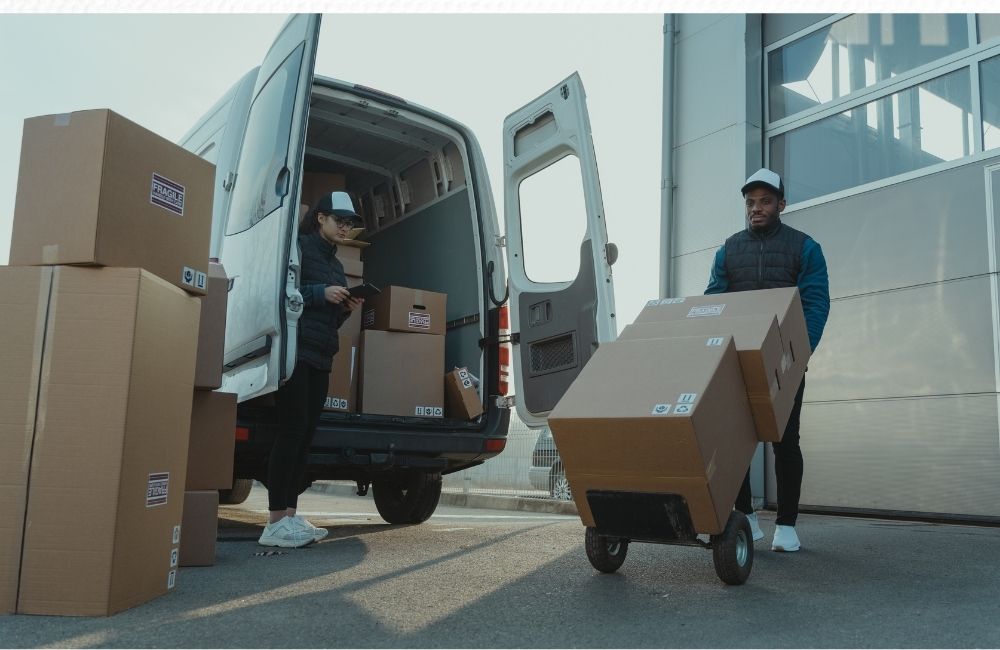
Challenges of E-Commerce Logistics in NYC
The rise of e-commerce has revolutionized the logistics industry, bringing both opportunities and new challenges. Nowhere is this transformation more evident than in New York City, where high demand, rapid delivery expectations, and urban congestion create a complex environment for logistics providers.
1. High Delivery Demand and Fast Turnaround Expectations
Consumer behavior has shifted dramatically with the growth of e-commerce, with many shoppers now expecting same-day or next-day deliveries as the standard. This increased demand puts significant pressure on logistics companies to process, pack, and ship orders with unprecedented speed.
- Balancing Speed and Cost: Meeting fast delivery expectations often comes at a higher operational cost. Expedited shipping methods, multiple delivery attempts, and increased labor needs can drive up expenses, making it difficult for businesses to maintain profitability.
- Scalability Challenges: Demand fluctuations, such as seasonal surges during holidays or promotional events, create logistical strain. Businesses must scale up operations quickly to meet demand without over-investing in infrastructure that may not be needed year-round.
- Fulfillment Center Placement: To optimize delivery speed, warehouses and distribution centers must be located close to customers. However, in NYC, where real estate prices are among the highest in the country, finding and maintaining large storage spaces is not always feasible.
2. Limited Space for Warehousing and Fulfillment Centers
The high cost of real estate in NYC makes it difficult to establish large fulfillment centers within city limits. As a result, logistics companies must find innovative solutions to store, manage, and distribute inventory efficiently. Construction is underway for an additional 8.7 million square feet of warehouse space in New York City, including a 1.2 million square foot UPS facility in Red Hook, Brooklyn, reflecting the city’s increasing demand for storage solutions. Companies are turning to micro-warehousing, multi-purpose facilities, and partnerships with local businesses to keep inventory close to customers while managing costs.
- Micro-Warehousing and Dark Stores: Some logistics companies are turning to micro-warehousing—smaller, decentralized storage spaces placed closer to major customer hubs. Dark stores, which function as fulfillment centers rather than physical retail locations, are another solution that helps speed up last-mile delivery.
- Multi-Purpose Facilities: Warehouses in NYC often serve multiple functions, combining fulfillment, cross-docking, and last-mile delivery operations to maximize efficiency.
- Partnerships with Local Businesses: Some e-commerce companies use local brick-and-mortar stores as temporary distribution points, allowing them to utilize existing retail space for faster deliveries.
3. Traffic Congestion
Traffic congestion, limited parking, and strict regulations create obstacles for logistics companies trying to complete deliveries on time.
- Rush Hour Gridlock: NYC’s streets are frequently clogged with vehicles, especially during morning and evening rush hours. Delivery trucks often experience significant delays, increasing operational costs and frustrating customers.
- Pedestrian Zones and Delivery Restrictions: Many parts of the city have pedestrian-only zones, restricted delivery times, and loading zone regulations that make direct-to-doorstep delivery more difficult. Logistics companies must plan around these restrictions to ensure efficient operations.
- Alternative Delivery Methods: To combat these issues, some logistics providers use alternative transportation methods such as bicycles, electric scooters, or even walking couriers for short-distance deliveries. These methods reduce reliance on trucks and help avoid traffic bottlenecks.
4. Managing Returns and Reverse Logistics
E-commerce has made it easier for consumers to shop, but it has also led to higher return rates. Managing returns—also known as reverse logistics—is a major challenge for logistics providers, requiring efficient processing and restocking strategies.
- High Volume of Returns: Certain industries, such as fashion and electronics, experience return rates as high as 30-40%. Processing these returns quickly while minimizing costs is a constant challenge.
- Return Pickup Services: Some logistics providers have introduced scheduled return pickups or drop-off locations to make the process more convenient for consumers.
- Refurbishment and Resale: Many businesses refurbish and resell returned goods instead of discarding them, which helps recover costs and reduce waste.
5. Security and Theft Prevention
With the rise of e-commerce deliveries, package theft has become a growing concern, particularly in dense urban areas like NYC. Logistics providers must take extra precautions to prevent theft and ensure secure deliveries.
- Secure Drop-Off Locations: Many logistics companies now offer smart lockers or designated package pickup locations, reducing the risk of theft from doorsteps.
- Signature Confirmation and Photo Proof: Requiring a signature upon delivery or providing customers with photographic proof of their package’s arrival helps increase security and accountability.
- AI and Surveillance: Some companies use AI-powered surveillance tools to monitor high-risk delivery zones and deter theft.
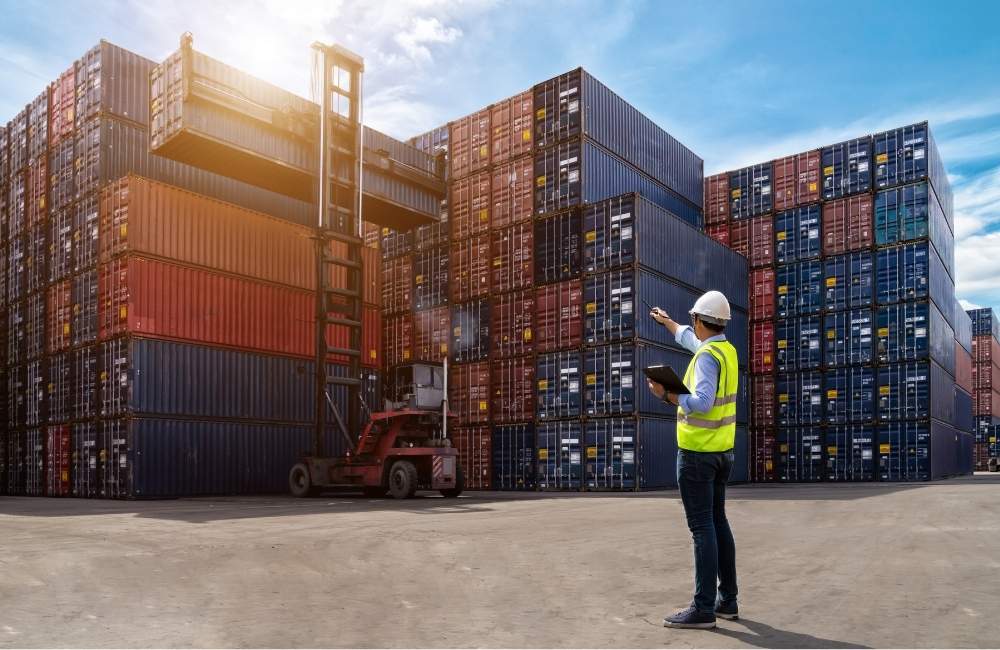
Comprehensive 3PL Solutions and Local Expertise for NYC Businesses
Businesses operating in this fast-paced environment require logistics solutions that not only address these challenges but also enhance efficiency, reduce costs, and improve supply chain management. Third-party logistics (3PL) providers play a crucial role in offering tailored services that enable companies to meet their shipping, warehousing, and distribution needs effectively. A successful logistics strategy in NYC requires a combination of advanced technology, well-structured freight brokerage, strategic warehouse placement, and strong partnerships with vetted carriers. The best 3PL providers integrate these elements to create seamless supply chain solutions, ensuring that businesses can scale and adapt as needed.
Freight Brokerage Services
Freight brokerage is a core service provided by 3PL providers, allowing businesses to connect with reliable carriers for both full truckload (FTL) and less-than-truckload (LTL) shipments. In a high-demand environment like NYC, freight brokers negotiate the best shipping rates and secure transport options that align with business requirements.
- Strategic Carrier Matching – 3PL providers leverage extensive carrier networks to ensure that businesses receive the most cost-effective and timely transportation solutions.
- Optimized Route Planning – Freight brokers use data-driven technology to identify the fastest and most efficient delivery routes, minimizing delays caused by NYC’s traffic congestion.
- Flexible Shipping Options – Businesses have access to scalable shipping options, ensuring they can adjust their freight volume based on seasonal demand fluctuations.
Advanced Warehouse Management & Inventory Control
Real estate constraints make warehouse placement in NYC a challenge. To address this, logistics providers offer strategically located 3PL warehouses that provide secure and scalable storage solutions. These warehouses are equipped with advanced inventory management systems to help businesses track and manage stock efficiently.
- Real-Time Inventory Tracking – Businesses benefit from real-time visibility into stock levels, helping them make informed restocking decisions.
- Optimized Storage Solutions – Scalable storage options ensure businesses can store varying inventory volumes without overpaying for unnecessary space.
- Efficient Order Fulfillment – Automated order processing improves turnaround times, allowing businesses to meet fast shipping expectations.
Custom Logistics Solutions
Different industries have specialized logistics needs, and 3PL providers offer tailored solutions to meet these demands. Whether handling temperature-sensitive goods, hazardous materials, or high-value products, customized logistics services help businesses transport their goods safely and efficiently. Customized logistics solutions enhance efficiency, reduce costs, and improve compliance with industry regulations, making them essential for businesses operating in highly regulated sectors.
- Temperature-Controlled Storage – Ideal for industries requiring climate-sensitive inventory management, such as food, pharmaceuticals, and cosmetics.
- Hazardous Materials Handling – Specialized safety measures ensure compliance with NYC’s strict regulations for transporting hazardous goods.
- Kitting and Assembly Services – Businesses requiring bundled packaging or custom assembly before shipment can streamline operations with specialized kitting solutions.
Scalable Logistics for Business Growth
As businesses expand, their logistics needs become more complex. Scalability is a key advantage offered by 3PL providers, allowing companies to adapt to changing demand without significant upfront investments in infrastructure. By offering scalable logistics strategies, 3PL providers help businesses remain agile, competitive, and cost-efficient in NYC’s dynamic marketplace.
- Flexible Warehousing & Distribution – Businesses can scale up storage and distribution capabilities as needed, ensuring they can handle increased order volumes during peak seasons.
- Multi-Channel Fulfillment – Support for e-commerce, retail, and wholesale distribution channels allows businesses to reach more customers efficiently.
- Risk Mitigation – With scalable logistics solutions, companies can manage operational risks more effectively, avoiding overcommitment to fixed assets.
Leveraging Advanced Technology & Real-Time Tracking
Technology is at the heart of modern logistics. Real-time tracking systems, AI-driven route optimization, and digital inventory management tools are transforming how businesses handle their supply chains.
- End-to-End Visibility – Businesses gain real-time updates on shipments, allowing them to monitor inventory movement from warehouse to final destination.
- Predictive Analytics – AI-powered forecasting tools help businesses optimize inventory levels and anticipate demand fluctuations.
- Automated Systems – Streamlined order processing and automated picking reduce errors and improve order accuracy.
Navigating NYC’s Urban Logistics Challenges
Operating in NYC demands more than standard logistics expertise—it requires a deep understanding of local traffic patterns, regulations, and infrastructure. Logistics providers with extensive experience in the city use strategic planning and technology-driven solutions to overcome these urban challenges.
- Traffic Management – Smart routing technology helps optimize delivery paths, reducing time spent in congested areas.
- Regulatory Compliance – 3PL providers ensure businesses comply with NYC’s strict commercial vehicle restrictions, preventing delays and fines.
- Optimized Delivery Windows – Companies coordinate shipments around restricted delivery hours to maximize efficiency.
Building Strong Carrier Partnerships for Reliable Shipping
A reliable carrier network is essential for cost-effective and efficient shipping. 3PL providers partner with vetted carriers to ensure on-time deliveries, reduced costs, and minimized disruptions.
- Competitive Pricing – Established partnerships allow for better shipping rates, saving businesses money.
- Enhanced Reliability – Working with trusted carriers ensures consistent and dependable delivery services.
- Scalability & Flexibility – A strong network enables businesses to adjust shipping capacity as needed.
Customer-Centric Logistics
The best logistics providers prioritize customer service, ensuring that businesses receive the support they need to succeed. Personalized solutions, ongoing evaluations, and continuous process improvements define a customer-first approach. By focusing on long-term success, 3PL providers help businesses navigate NYC’s logistics landscape with confidence while fostering strong client relationships.
- Tailored Logistics Plans – Businesses receive customized strategies designed to fit their unique needs and growth plans.
- Proactive Problem-Solving – Dedicated logistics teams anticipate and mitigate potential disruptions before they impact operations.
- Ongoing Support & Consultation – Businesses benefit from expert guidance to optimize their supply chain strategies.
Frequently Asked Questions
What services do New York shipping experts offer?
New York shipping experts provide a wide range of logistics services, including freight forwarding, warehousing, last-mile delivery, and international shipping solutions. Many companies specialize in industry-specific services such as temperature-controlled transport, hazardous materials handling, and oversized cargo logistics. Their expertise ensures smooth operations, compliance with regulations, and cost-effective shipping for businesses.
How do I choose the right shipping company in New York?
Choosing the right shipping company involves assessing factors like experience, service offerings, pricing, and customer reviews. It’s important to verify their ability to handle specific shipping needs, whether domestic, international, or specialized cargo. Comparing quotes and ensuring the company meets regulatory compliance can help businesses make an informed decision.
What are the benefits of using a freight broker in New York?
Freight brokers connect businesses with reliable carriers, ensuring efficient transportation and optimized shipping costs. They negotiate competitive rates, manage route planning, and handle logistics paperwork to streamline operations. Working with a freight broker can help businesses navigate NYC’s challenging shipping landscape while saving time and money.
Are there specialized shipping services for luxury goods in New York?
Yes, several shipping companies specialize in handling luxury goods such as fine art, antiques, jewelry, and high-end fashion. These services include secure packaging, climate-controlled transport, and white-glove handling to ensure safe delivery. Many companies also offer real-time tracking and insurance coverage to protect valuable shipments.
How do port strikes affect shipping operations in New York?
Port strikes can cause major delays, disrupt supply chains, and lead to increased shipping costs due to congestion and rerouted shipments. Businesses relying on imported goods may experience stock shortages and longer transit times. Planning ahead and working with logistics providers who offer alternative routing solutions can help minimize disruptions.
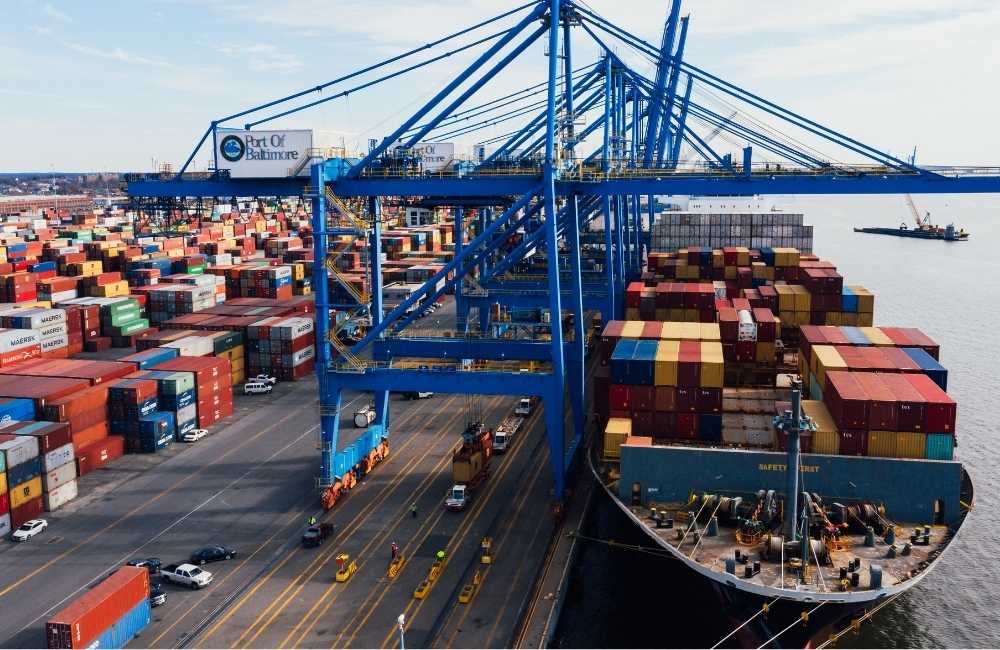
Partner with 3PL Logistics By Best for Seamless Shipping in NYC!
Navigating New York City’s complex logistics landscape requires expertise, advanced technology, and strategic planning. 3PL Logistics By Best, located in New York City, is your trusted partner for professional shipping logistics in NYC, offering tailored solutions to optimize your supply chain. With years of experience in the industry, 3PL Logistics By Best ensures efficient freight brokerage and warehouse management services to keep your business running smoothly.
As New York’s trusted shipping provider, 3PL Logistics By Best understands the challenges of operating in a dense urban environment. Whether you need local shipping specialists for small shipments or full-scale logistics support, our team in New York City is ready to provide customized solutions. Contact 3PL Logistics By Best in New York City today to streamline your supply chain with professional shipping logistics in NYC that guarantee efficiency, reliability, and cost savings!
